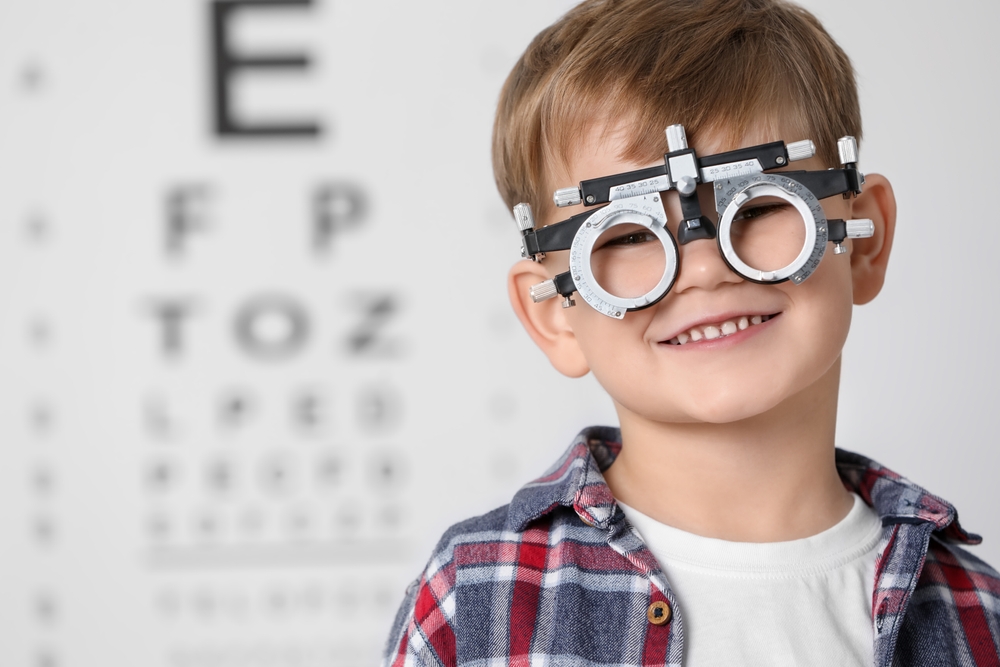
Signs Your Child Needs a Pediatric Eye Exam
Vision plays a crucial role in a child's overall development and academic performance. Early detection of vision problems can help prevent long-term consequences and ensure your child's eyes are developing correctly. Pediatric eye exams are designed to assess a child's visual acuity, eye coordination, and overall eye health. These exams can identify issues such as nearsightedness, farsightedness, lazy eye, and other conditions that may impact their vision.
Common Eye Conditions in Children
Common eye conditions in children can affect their vision and overall development, making early detection crucial. Some of the most prevalent issues include refractive errors like myopia (nearsightedness), hyperopia (farsightedness), and astigmatism, which can be corrected with glasses or contact lenses.
Amblyopia, or "lazy eye," occurs when one eye doesn't develop proper vision, while strabismus, or "crossed eyes," involves a misalignment of the eyes. Both conditions may require treatments such as patching, vision therapy, or even surgery. Regular pediatric eye exams are essential to catch and manage these conditions early, ensuring optimal visual health for children.
Signs That Your Child May Need an Eye Exam
Keeping an eye out for certain signs can help you determine if your child needs a pediatric eye exam. Some of the most common indicators include:
• Frequent eye rubbing or blinking: If your child frequently rubs or blinks their eyes, it may be a sign of eye strain or discomfort.
• Tilting the head or covering one eye: This could be a sign of eye misalignment or difficulty focusing with both eyes.
• Squinting or closing one eye when trying to focus: This behavior may indicate refractive errors or other vision problems.
• Complaints of headaches or eye fatigue: These symptoms can be associated with various vision issues, such as nearsightedness or astigmatism.
• Difficulty with reading or schoolwork: If your child is struggling with reading, writing, or other visual tasks, it could be a sign of an underlying vision problem.
• Frequent eye infections or irritation: Recurrent eye infections or irritation may indicate an underlying condition that requires medical attention.
• Developmental delays or learning difficulties: Vision problems can sometimes contribute to or exacerbate developmental delays or learning difficulties in children.
If you notice any of these signs in your child, it's important to schedule a comprehensive pediatric eye exam to identify and address any potential vision issues.
Early Detection through Regular Pediatric Eye Exams
Early detection and intervention are crucial when it comes to vision problems in children. By identifying and addressing issues early on, you can help prevent long-term consequences and ensure your child's eyes develop properly. Regular pediatric eye exams can help detect vision problems before they have a significant impact on your child's daily life, academic performance, and overall well-being.
Schedule Your Child’s Eye Exam with Lone Star Vision Today
Pediatric eye exams are essential for maintaining your child's visual health and supporting their overall development. By being aware of the common eye conditions in children and the signs that indicate the need for an eye exam, you can take proactive steps to ensure your child's vision is developing properly.
If you're concerned about your child's vision or it's time for their next pediatric eye exam, contact Lone Star Vision to schedule an appointment. Visit our office in Plano or Celina, Texas. Please call (972) 378-4104 or (972) 382-2020 to book an appointment today.







